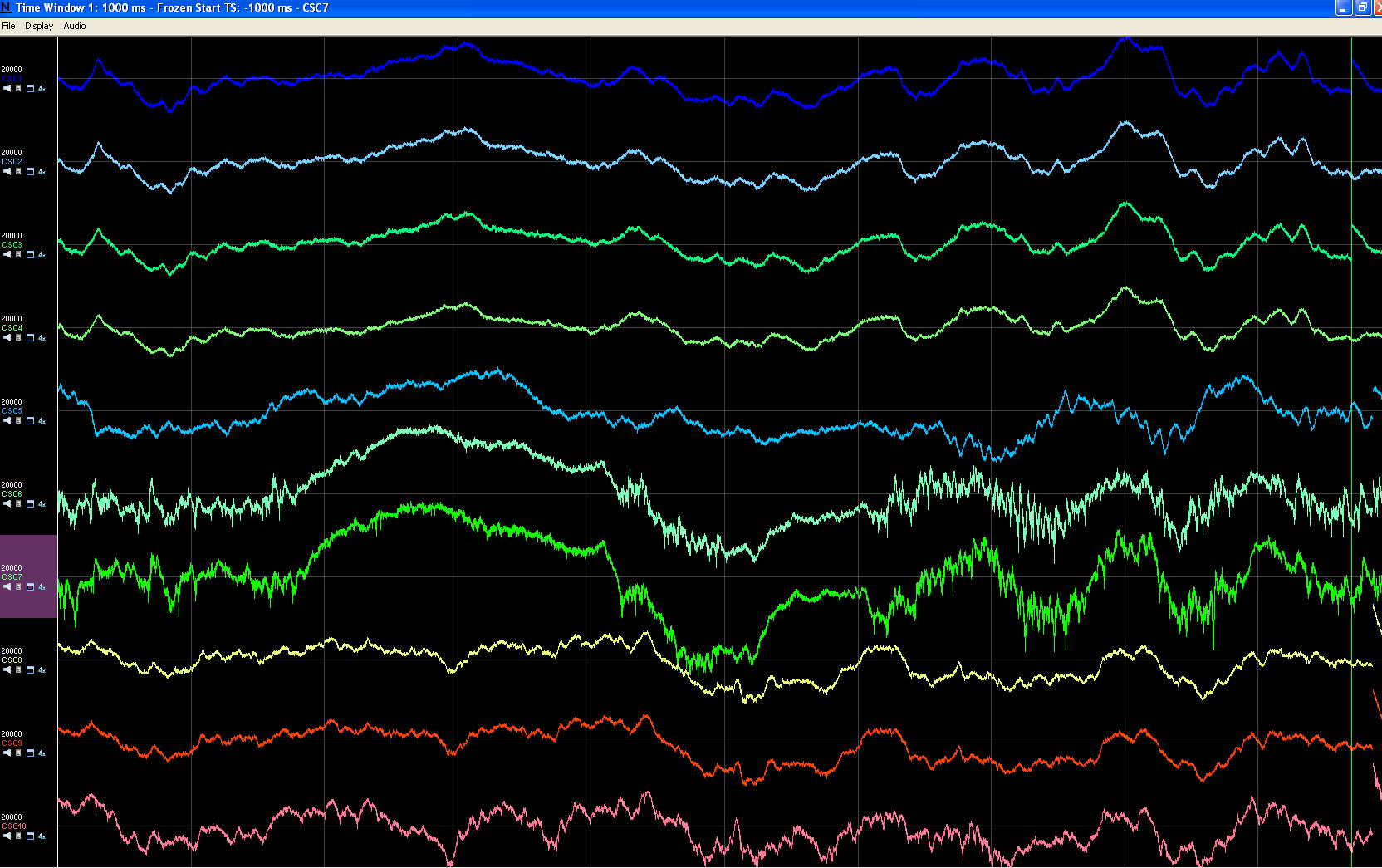- Making electrodes
- Handling and training animals
- Implanting electrodes into the brain
- Recording extracellular signals
- Origin of extracellular potentials
- Physical principles of extracellular recording
- Practical aspects of extracellular recordings
- Preparing ephys data for analysis
- Analysis of LFP signals, detection and quantification of low and high frequency oscillations
- Sorting of extracellular spikes
- Analysis of spike trains
- Current-source density (CSD) analysis
- Potential caveats and pitfalls in analysis of LFP signals
For each topic I provide first a presentation with theoretical introduction. Then we switch to Matlab where I explain how to implement a particular analysis using a well-commented demo script. At the end the participants can try the explained analysis on their own using the provided list of exercises as a guideline.
Programming skills or prior Matlab knowledge is helpful, but not necessary. No need for a powerful PC or laptop, or Matlab license, because all the work is done remotely on the lab server. Fast enough internet connection is desirable.
Content: The course is intended for Master and PhD students interested in systems neuroscience and willing to learn state-of-the-art extracellular recording techniques and analysis of the electrophysiological data. The course includes both theoretical introduction into all the aspects of the extracellular recording and hands-on practicum on recordings with tetrodes or silicon probes of local field potentials and multiple single neurons in freely moving rats or mice. Training will include animal handling and training, preparing electrodes, brain surgery, recording in typical behavioral tasks, data processing, spike sorting and typical data analysis of local field potentials and spike trains in Matlab.
Acquired skills: After participating in the course, the students will learn about modern extracellular recording techniques, the origin and interpretation of extracellular signals, application of the techniques to spatial navigation and learning research. They will be familiarized with the terminology relevant to the electrophysiological experiments. Under close supervision, the students will go through all the principle steps of a typical experiment themselves. At the end they will be able to handle and train animals, make tetrodes and implant them into the brain, operate an acquisition system to record extracellular signals, visually explore and evaluate quality of the recorded data, prepare the data for further analysis, do spike sorting, program Matlab scripts to perform typical spectral and spike train analysis. The acquired knowledges and skills can be directly applied to specific scientific projects the students are already working on or plan to work on in the future.
| 3 ECTS; 2 week full-day (9:00-18:00 s.t.) block course; |

- Teacher: Evgeny Resnik